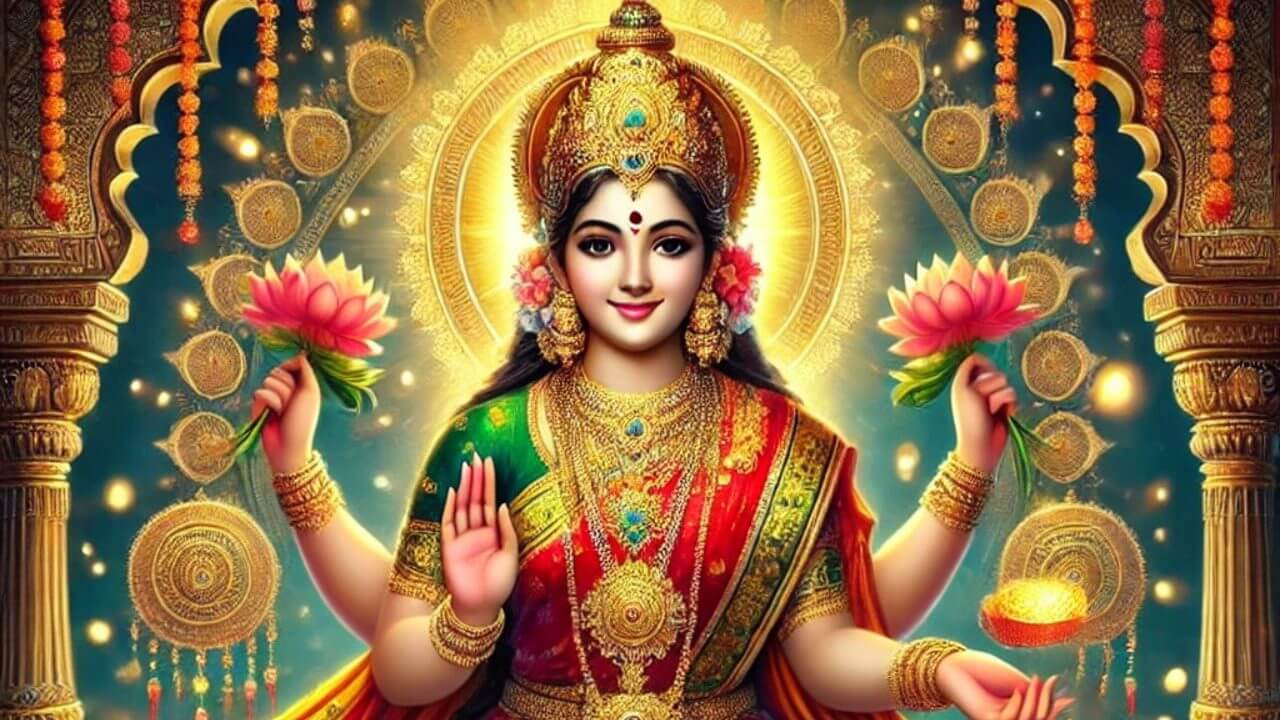On Dhanteras, know interesting mythological stories related to the goddess of wealth Lakshmi, what is the relationship between Lakshmi and Alakshmi.

Significance of Goddess Lakshmi : Today is Dhanteras and with this the festival of Diwali has started. Today is associated with wealth, health and prosperity. This festival is especially celebrated as a symbol of happiness and prosperity among traders, businessmen and families. In Sanskrit, “Dhan” means “wealth” and “Teras” means “thirteenth day”, as it is celebrated on Trayodashi tithi of Krishna Paksha of Kartik month.
Worshiping Goddess Lakshmi on Dhanteras has special significance, as this day is considered a symbol of prosperity and arrival of wealth. On this day, people clean their houses and light lamps so that positive energy and Goddess Lakshmi reside in the house. Buying gold and silver jewelery and new utensils on this day is considered auspicious, which increases the flow of money and property in the house.
Mythological stories related to Goddess Lakshmi
The mythological significance of Dhanteras is linked to many stories. eNeither story is mentioned in detail in Vishnu Purana, Devi Bhagwat, Padma Purana, and other scriptures. Today we will tell you We are going to tell some stories related to Lakshmi, the goddess of wealth, which are found in religious texts. These stories are prevalent in different forms in different regions of India. Through these, the message is given that purity, labor and hard work are important to attain the blessings of Goddess Lakshmi.
1. Churning of the ocean and appearance of Goddess Lakshmi : Vishnu Purana and Srimad Bhagwat Purana According to the story of Samudra Manthan, the Gods and Asuras churned the Samudra using the Mandarachal mountain and Vasuki Naga to obtain the nectar. During this churning Goddess Lakshmi appeared and brought the boon of wealth, opulence and prosperity. She chose Vishnu as her husband, and from then on Lakshmi began to be worshiped as Vishnu's consort and the goddess of wealth.
2. Story of Goddess Lakshmi and King Bali : Due to the devotion and charity of King Bali, he became extremely powerful. Lord Vishnu in Vaman incarnation asked him to donate three paces of land. When Bali accepted it, the Lord assumed his gigantic form. Lord Vishnu was very pleased with this and asked King Bali to ask for a boon. After this, King Bali said that you should stay with us as a gatekeeper in the underworld, which was accepted by Lord Vishnu. After this, Goddess Lakshmi came to King Bali in the guise of a poor Brahmin and tied Rakshasutra on his hand. On this, King Bali asked Lakshmi ji to ask for some gift, on which she said that she should send Lord Vishnu back to Vaikuntha. The committed sacrifice accepted this demand of Goddess Lakshmi.
3. Consecration of Goddess Lakshmi and Gaja Lakshmi : According to another legend, an Abhishek ceremony of Goddess Lakshmi took place in which she is seated on a lotus and on either side are elephants who are showering water on her. This form is famous as 'Gaja Lakshmi' and is considered a symbol of wealth, opulence and prosperity. Gaja Lakshmi is also worshiped as the goddess of rain and agriculture, associated with the prosperity of the land and wealth.
4. Relationship between poverty and Goddess Lakshmi : According to Padma Purana, Lakshmi ji had made poverty goddess her friend. This story tells that Lakshmi and poverty do not live together, that is, where Lakshmi resides there is no poverty and where there is poverty there is no Lakshmi. For this reason, Indian folklore emphasizes on cleaning the house and maintaining positive energy during the worship of Lakshmi.
5. Relationship between Goddess Lakshmi and Alakshmi According to the mythological story of Devi Mahatmya and Lalita Sahasranama, Alakshmi, who is a symbol of poverty and unrest, is considered to be the elder sister of Goddess Lakshmi. It is believed that where Goddess Alakshmi resides, there is poverty and misery. Therefore, during the worship of Goddess Lakshmi, people perform various rituals to expel Goddess Lakshmi from the house, so that Goddess Lakshmi always resides in the house.
(Disclaimer: This article is based on information received from various sources. We do not make any claims regarding it.)


Comments are closed.